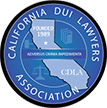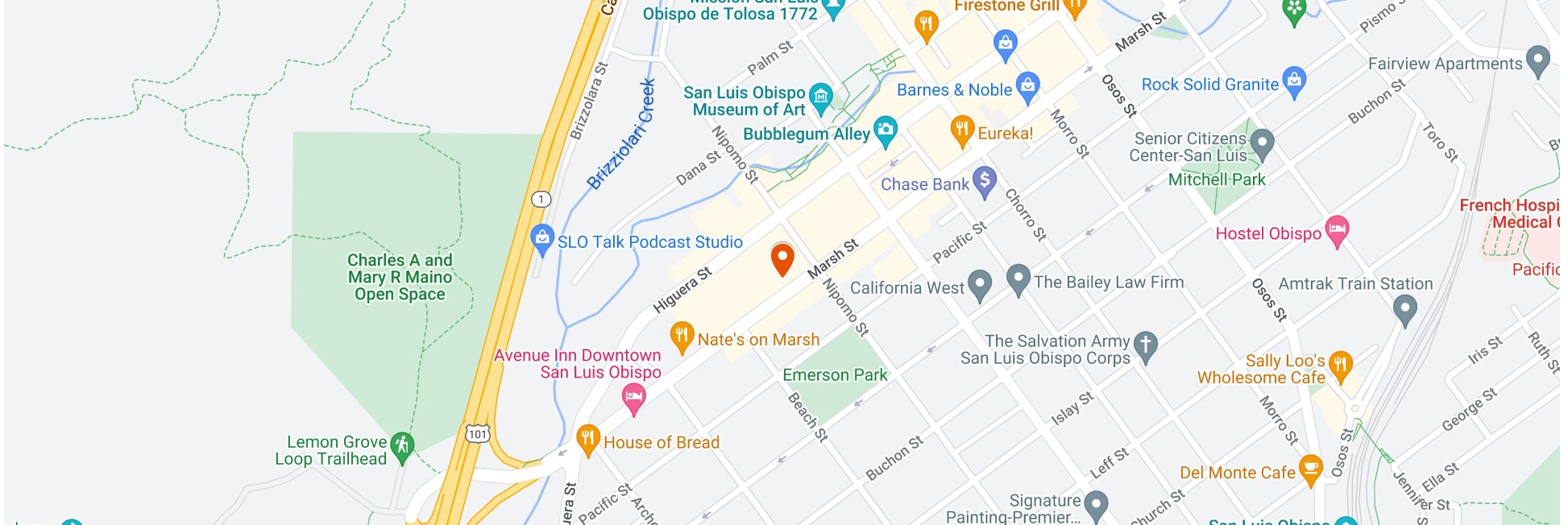California has harsh rules for anyone who is caught driving under the influence of alcohol or drugs. The law also increases the criminal penalties for perpetrators arrested while operating a vehicle with a passenger under the age of 14 in the vehicle. This is referred to as "DUI with Child Endangerment" and is outlined under California Vehicle Code 23572. It entails mandatory jail time in addition to regular DUI penalties. This implies that if you are convicted of DUI while driving with a child under 14 in your car, you will inevitably face jail time. If you are facing such accusations in San Luis Obispo, get in touch with us at San Luis Obispo DUI Attorneys so that we can review your case and start building a solid defense strategy.
A Summary Of California's DUI Regulations
California DUI regulations are among the most stringent in the country. Driving with a BAC of 0.08% is prohibited in California. The purpose of California's DUI laws is to safeguard both the general public and other motorists. DUI charges in California are categorized as felonies or misdemeanor charges based on the conditions and nature of the act.
The initial three DUI arrests are tried as misdemeanors. As a result, if you are accused of drunk driving and have already got two DUI charges in under ten years, the third conviction will likely be charged as a misdemeanor.
The sentence, however, will differ from that for the first and second DUI charges. The third DUI charge will almost certainly result in a year behind bars as well as a $1,000 fine. Your license may also be suspended by the DMV for a duration of up to 3 years.
In California, several aggravating conditions involving DUI might result in sentence enhancements. For instance, having a minor below the age of 14 in your car when you were pulled over for DUI could result in a harsher punishment.
Whether you are facing your initial, second, or subsequent DUI charge, sentence enhancements are equally applicable. The specific sentence enhancement the court will impose will be determined by the specifics of the case as well as your previous convictions, including prior DUI charges.
Driving Under the Influence With A Minor Under 14
California's laws are highly protective of minors. If it is determined that you violated the law when a child was present, you will face harsh punishment. It is a serious crime to drive while intoxicated by drugs or alcohol with a minor in the car. It is more than just committing a criminal act in the sight of a minor; it also subjects the minor to danger.
Therefore, if you have been convicted of carrying a minor in your car while inebriated, your sentence will be increased. It is even more important to comprehend this rule if you are charged with drugged or drunk driving with a child under the age of 14.
The California Vehicle Code (VC) 23572 prohibits DUI with a child under the age of 14. According to that statute, DUI offenders who are charged and convicted of operating a vehicle while drunk with a child under the age of 14 face harsher penalties.
The statute offers sentence enhancement in addition to the usual DUI penalty. Further charges for child endangerment could also be brought against you. As a result, if you are convicted under California Vehicle Code 23572, you will likely be subject to two different criminal counts.
According to California Civil Code 23572, the prosecution must establish each of the following factors beyond a shadow of a doubt before the court can declare you guilty:
- That you had been using drugs or alcohol while operating a car
- That a minor under the age of 14 was found inside your car during the arrest
The prosecutors should convince the court that you operated your car while inebriated in violation of California Vehicle Code 23152. The prosecution must demonstrate that you had been either driving while intoxicated or that you had a blood alcohol concentration of 0.08%.
Based on how many DUI charges you have had within 10 years, you may be charged with a subsequent DUI if you've had a previous DUI conviction. The judge will use that information to determine the proper sentence for both your original offense as well as the enhanced sentence. If it is proven that you were driving while intoxicated, the prosecution will progress to show that you were carrying a minor below the age of 14 at the moment of the arrest.
Carrying a minor in the car while under the influence of alcohol or drugs does not indicate that you meant to harm the child. Additionally, when deciding whether to prosecute you under California Vehicle Code 23572, the prosecution will not take your amount of intoxication or your driving style into account. Even for first-time DUI defendants, an aggravating element that could result in felony DUI allegations is having a child under the age of 14 inside the car.
Penalties for California DUI With a Passenger Under 14 Penalties
The implications for DUI with a child under the age of 14 differ based on the type of DUI violation committed. That's so since a DUI with a child under the age of 14 is an aggravation of your existing offense rather than a separate crime. As a result, you will be charged with extra offenses in addition to the DUI.
If the prosecution has prosecuted you for either drunk driving or operating an automobile with a Blood Alcohol Concentration of over 0.08%, only then can you be charged with having committed a DUI with a child under the age of 14. The following are just a few examples of the consequences of a typical DUI charge:
DUI First Offense
The following are the consequences for the first DUI offense:
- Fines of $1,000
- Your driving license could be subject to suspension for four to 10 months
- A county jail term of a maximum of 6 months
- Instead of your 6-month sentence, you might receive a probationary term of 5 years
Second DUI Offense
If you've previously been charged with drunk driving, you could face the following criminal penalties:
- Driving privileges could be suspended for a maximum of 2 years
- Fines that could amount to a thousand dollars
- A county jail term of a maximum of 1 year
- Compulsory DUI school enrollment for up to 18 months
3rd Offense DUI
This crime carries the following penalties:
- Driving privilege suspension for up to 3 years
- Compulsory participation in a Driving Under the Influence program
- Monetary penalties of $1000
- Jail term of one year
- Compulsory IID installation
Because a DUI with a child under 14 only carries an enhancement of the sentence, the offender will be subject to the aforementioned penalties. This indicates that the offender will receive additional punishment for driving under the influence while carrying a child under the age of 14. The added sentence will differ based on the DUI charge. The enhanced penalties for driving under the influence while having a child under 14 include:
- For the first DUI offense, an extra 48-hour sentence along with the DUI charge term
- For a second DUI offense, an extra 10 days in jail
- An estimated 30 days are added to the sentence for a third count
The jail term imposed by the judge will be increased by 90 days if the criminal is 4th or subsequent DUI offense.
Additionally, it's critical for DUI offenders who had children under 14 in their vehicles to understand that these sentencing enhancements are compulsory. This indicates that you'll be subject to jail time when the court convicts you of this crime.
The only means to avert the penalties is to get the DUI with a child under 14 dismissed. You should engage a top-notch DUI attorney to assist you if you want a favorable result. The defense attorney will fight to have your charges lowered to maybe child endangerment charges.
Commonly Used DUI Defenses
To absolve you of a DUI charge, your lawyer has to develop a strong defense that plays to your advantage. Many seasoned lawyers have no trouble with this since they know what to do during a DUI case and can find weaknesses in the prosecution's argument. A solid defense could get you zero or reduced penalties for a DUI charge, not just if there is a passenger under 14, but also if there is alcohol in your system.
Commonly used DUI defenses that attorneys employ include:
- The arrest was conducted unlawfully
- There is a chance that the tests were falsified
- The arresting officer didn't provide you with your Miranda rights when arresting you
- The results of the BAC test may not have been accurate because of faulty equipment
- The field sobriety tests are inconclusive and cannot confirm whether the driver was intoxicated or not
- The tests were processed at the wrong time
You Did Not Commit a DUI Offense
If you weren't operating a vehicle while intoxicated, you could not be found guilty under Vehicle Code 23572. Therefore, some of your evidence should be cited and refuted.
If you avert a DUI, you won't face additional charges, such as child endangerment. Fortunately, there are a number of alternative defense strategies your attorney can use to refute the DUI allegations. These options include:
- The field sobriety tests didn’t reflect intoxication
- Inaccurate sobriety tests
- An inaccurate BAC result
- The arresting officer didn’t follow proper procedures
No Passenger Under 14
If the prosecution has sufficient evidence against you for DUI, your lawyer would not be able to effectively fight the charges. California law states that you could be charged with VC 23572 if the passenger inside your vehicle at the time of arrest was under 14 years old. However, if the passenger is aged 14 and over then you could be charged with a lesser crime.
An attorney can provide the age of your passenger in court to have your charges reduced. Keep in mind that, if the passenger is still a minor, you could face serious charges for endangering a child. An experienced lawyer will be able to provide you with the best strategies and tools to have your charges reduced.
DUI Plea Deals
There are a lot of DUI defenses that might not apply to your case. Lawyers are adept at finding loopholes and can use these to create a strong defense against the charges that have been laid. If there are no loopholes, it means the prosecution was spot on, and the tests are correct.
When this kind of situation arises, your lawyer could decide to take the plea deal that the prosecutor offers. He or she would agree to the plea bargain offered so that the accused doesn't get a DUI conviction if they are in the vehicle with a minor below 14 years. The plea deal offered is most likely to reduce the charge for a DUI offense with a child below 14 years.
When someone accepts a plea deal, it means that they have accepted responsibility for the DUI offense. In response, the prosecutor will present you with a chance for reduced penalties. Your attorney must agree with this before it can take effect. While the plea count has its downsides, there are a few merits to it.
These include:
- Your driving permit will not be revoked or suspended
- Reduced fines
- Jail time differs for each case, but is normally minimal, or nothing at all
- Less negative consequences on your auto insurance
The following charges would be reduced during a plea bargain:
- Traffic Infractions
- Dry reckless charge
- Wet Reckless charge
The ability of your lawyer to negotiate with the prosecutors can help convince them to eliminate aspects of your sentence, such as charges that involve minor passengers. You should hire excellent attorneys with expertise in DUI defenses and child endangerment laws to represent you. You need to have a lawyer present at all times to ensure that your rights are not violated. If you don't, then the possibility of getting a light sentence is unlikely.
Related Charges
In California, a DUI with a passenger under the age of 14 is not regarded as a separate offense. This implies that the offense should be charged in conjunction with another DUI crime. The following are the charges related to a DUI with a passenger under 14:
Driving Under the Influence
Under VC 23152, any person found driving under the influence of drugs or alcohol with a BAC level of 0.08% (or higher) can be charged with a DUI. If you break this law with a passenger under 14 in the vehicle, then you'll be violating VC 23572 and worse, PC 273(a) child endangerment.
Child Endangerment
California's main child endangerment law is California PC 273a. It applies to any willful, harmful contact with a child under 18. This law states that it is an offense to willfully allow or cause a minor to suffer unjustifiable mental suffering or physical pain. The provisions also make it illegal to willfully allow or cause any child to be put in a situation where they would suffer unjustifiable mental suffering or physical pain.
It also states that it is an offense for anyone who has custody or care of a minor under the age of 18 to deliberately place him or her in a bad situation.
Under this law, it is illegal to possibly put the life of a minor in danger. Although this provision is specific in saying that it is meant to protect those under 18 years of age, the law sometimes includes DUIs where one has a 14-year-old passenger in the car. If you were under the influence behind the wheel of a vehicle and had a minor with you, then the jury would more than likely find you guilty of the crime.
Most individuals who get a DUI charge and have a passenger under the age of 14 would face DUIP because it does not require injury to the minor for them to find you guilty. If your attorney is not able to present a solid argument on your behalf in court, you will be convicted of DUI. It is therefore essential to hire a seasoned attorney to ensure that your sentence will be lenient.
Find a San Luis Obispo DUI Attorney Near Me
Understanding your strategy for fighting charges is usually crucial in criminal trials. That is why you should hire the best team of legal professionals to represent you in your DUI case. An experienced DUI attorney can help you avert a DUI with a minor under 14 charges or at least have your charges reduced.
With the legal expertise of our dedicated lawyers at San Luis Obispo DUI Attorneys, you can be certain that you will receive the legal representation you deserve. We believe that it's important to uphold the rights of all those who are accused of a crime, and we will defend them in any way we can. Call us today at 805-321-1000 to learn how we can help you.







